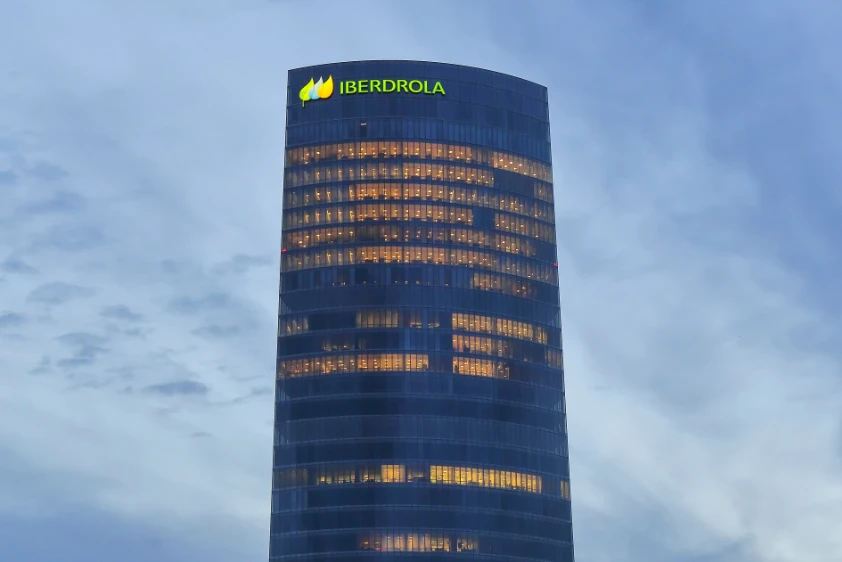IBERDROLA ESPAÑA'S GOVERNANCE AND SUSTAINABILITY SYSTEM
A comprehensive and market-leading regulatory framework

In the performance of its responsibilities and the exercise of its decision-making power, Iberdrola España, S.A.U. (the “Company” or “Iberdrola España”) has approved its own set of internal rules, referred to as the Governance and Sustainability System.
The Company’s Governance and Sustainability System was created as an organised internal system of rules for the first time on 11 July 2014, adopting the Group-level corporate policies and other internal regulations approved by Iberdrola, S.A., in its capacity as the holding company of the Iberdrola Group, of which Iberdrola España is a part, and which were therefore applicable thereto.
Since then, the Company’s Governance and Sustainability System has been constantly evolving in parallel with the development of Iberdrola España and its controlled companies, such that the Company’s own specific regulations now go far beyond those adopted from Iberdrola, S.A.
In accordance with the foregoing, Iberdrola España’s Governance and Sustainability System is made up of both specific rules approved by the competent bodies of the Company and rules, foundations, policies and principles approved by the Board of Directors of Iberdrola, S.A. in its capacity as a holding company and which, in view of the applicability of these regulations to the Iberdrola Group as a whole, the Company has adopted as its own and incorporated into its Governance and Sustainability System.
This regulatory framework is structured into four books:
- (i) an introductory book, which includes the Ethical and Basic Principles of Governance and Sustainability of the Iberdrola Group as well as the Purpose and Values of the Iberdrola Group.
- (ii) book one, which includes the By-Laws and the rules governing its corporate organisation.
- (iii) book two, with the Corporate Policies approved by the Board of Directors and grouped into four blocks: transparency and good governance; human and social capital; natural capital and sustainable value chain.
- (iv) book three, which contains a robust regulatory framework relating to internal audit, risk management and corporate control, as well as compliance.
Iberdrola España develops its strategy in accordance with a purpose and certain values to which all of the entities and persons forming part of the Iberdrola Group are committed, the common denominator of which is the achievement of the corporate interest and the social dividend, within the framework of its firm commitment to sustainability.
It has an equally firm commitment to unwavering vigilance and the punishment of acts that are illegal or contrary to law or the Governance and Sustainability System, which is expressed in the approval of a range of Compliance rules, notably the Code of Conduct for Directors, Professionals and Suppliers, which is intended to ensure that the conduct of the Company, its professionals and its value chain is in accordance with ethical principles, the law and the Governance and Sustainability System.
Governance and Sustainability System (GGS)
Introductory Book
Book One. By-Laws and Corporate Organisation
Book Two. Corporate Policies
PART 1. Transparency and good governance
PART 2. Human and social capital
PART 3. Natural capital
PART 4. Sustainable value chain
Book Three. Internal Audit, Risks and Compliance
PART 1. Risks and corporate control
PART 2. Compliance
Driving Ideas of Iberdrola España's Governance and Sustainability System
Iberdrola España's Board of Directors therefore regularly reviews the Governance and Sustainability System, keeping it updated and including therein the good governance recommendations and best practices generally accepted in international markets.
In order to facilitate the dissemination of the content thereof and to assist in searching by subject matter, symbols are included together with each rule or policy that identify the main “driving ideas” contained therein:
The sustainable creation of long-term value governs the Company’s actions, reflecting its aspiration to contribute to the implementation of a value chain that is respectful of the environment, transparent and ethical within the framework of a culture of excellence, and permits even-handed remuneration of the groups contributing to the success of its business enterprise. In this way, the sustainable creation of long-term value drives the social dividend that the Company shares with its Stakeholders, consistently with its institutional nature and in accordance with its purpose and values, as well as with its commitment to efficiency.
In terms of safety, security and operational resilience, the Company establishes rules and develops instruments that enable it to achieve a position of leadership in innovation, transformation and the responsible use of artificial intelligence in the energy sector, strengthening its competitiveness and development in the markets in which it operates.
The Company is committed to interaction with its various Stakeholders and to actively listening to them in order to encourage their engagement in corporate life, maintaining a direct, fluid, transparent, constructive, diverse, inclusive and intercultural dialogue.
The corporate and governance structure and Business Model of the Iberdrola Group are based on a recognition of its multinational and multi-corporate character, which is diversified, organised efficiently and coordinated around the Company, the country subholding companies and the head of business or country companies. All of them are subject to basic common guidelines and the principle of subsidiarity, which seeks a balance between decentralised management and the exploitation of the synergies that arise from belonging to the Group, allowing for the separation of the duties of strategic definition, organisation, coordination and supervision and the day-to-day and effective management of the businesses.
The sustainable strengthening and management of human capital is part of the Company’s sustainability strategy. This responds to inescapable social challenges, objectives and goals, such as respect for human rights, the development of professional relationships based on equal opportunity and non-discrimination, the prevention of harassment and the firm intention to combat it, promotion of talent, merit and skill, appropriate knowledge management, professional development, and the balance between personal and professional life.
The Company will continue to develop a leading position in contributing to the achievement of real and global energy electrification that achieves the development of industry and the economy through the development of sustainable energies generated from renewable sources and grid infrastructures, progressive traction on their respective value chains, improving the circularity of its activity and reducing polluting emissions, gradually introducing the most efficient and least carbon-intensive technologies in its facilities in order to promote self-sufficiency and competitiveness.
In addition, it will seek to integrate climate action into its internal strategic planning and decision-making processes and boost the response to climate change and the protection of the environment and biodiversity.
The Company promotes a preventive culture based on the principle of “zero tolerance” towards improper conduct and acts that are illegal or contrary to law or the Governance and Sustainability System, as well as the application of ethical principles and principles of responsible behaviour that should govern the conduct of all members of its management decision-making body, professionals and suppliers. This culture inspires its effective, autonomous, independent and robust Compliance System, which is under continuous review in order to adopt practices and trends in accordance with the highest international good governance standards and regulatory requirements in this area.
The Company has a comprehensive risk management system that allows it to proactively identify both potential threats and vulnerabilities that could compromise its operations and security as well as anticipating and taking advantage of opportunities for sustainable growth. The comprehensive risk management system also manages and mitigates the risks associated with such hazards, thereby strengthening the Company’s Governance and Sustainability System and the Operational Resiliency Model.





